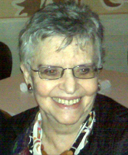Cities with human rights! |
In human rights cities, we remind ourselves what a true human rights educator is: a person, a woman or a man, who is capable of evoking systemic analysis and critical thinking, at the community level, guided by the fully comprehensive human rights framework that leads to action. This is a tall order both for the educator and the learner. Yet the call of Nelson Mandela to develop a new political culture based on human rights is being investigated and implemented by, for and with the people as they become mentors and monitors in a human rights city.
The assumptions being made in developing human rights cities are:
• every woman, man, youth and child knows when injustice and/or justice are present;
• every human being expects to live in dignity and away from humiliation;
• the holistic human rights framework provides a viable guideline for economic, societal and human development;
• millions of people will be born and die and will never know that they are owners of human rights which they can claim as their own to break through the vicious cycle of humiliation;
• human rights represent not only a litany of their violations but strategies for social and economic development;
• people belong in dignity in community with others, women and men alike;
• if we are to achieve economic and social justice no one human right can violate another and all conflicts must be solved within the human rights framework;
• democracy, to be true to its mission, must be a delivery system of human rights to all, in full equality and without discrimination;
• people can move power to human rights – moving from patriarchal verticality to human rights horizontality.
In a human rights city people consciously internalize and socialize to overcome fear and impoverishment. The city provides human security, access to food, housing, education, health care and work at liveable wages, sharing these resources with all citizens, not as a gift, but as the realisation of human rights. A human rights city is a practical, viable model that demonstrates that developing and living in such a society is possible. Often joined by the local authorities and law enforcement agencies, residents work together with a wide array of stakeholders and organizations to devise and design a dialogue and learning programs in the neighbourhoods. The purpose of these is to instil a sense of ownership of human rights as a way of life as relevant to people’s concerns. The city, its institutions, and its residents, as a complex social economic and political entity, becomes e a model for citizens’ participation in their social, economic, and cultural development. This process leads to the mapping and analysis of causes and symptoms of violations such as poverty and patriarchy and work to design ways and means to achieve the well-being of every person in their city.
As human rights are realized, people no longer live in fear and desperation so conflict is often avoided altogether. Appropriate conflict resolution is an inevitable consequence of the learning process as women and men work to secure the sustainability of their community as a viable, creative, caring society.
Steering committees in human rights cities representing public sector employees, religious groups, NGOs and community groups, community activists working on the issues of women, children, workers, indigenous peoples, poverty, education, food, housing, healthcare, environment and conflict resolution, and all other non-affiliated inhabitants. These committees work together to design the process of learning and reflecting about the ownership of human rights as significant to the decision-making process. Together they design actions that ensure that democracy abides by human rights principles, norms and standards, and that these are integrated in the policies that guide the life of the city. They work to strengthen activities that ensure community development and accountability. Individuals and groups take part in the action – every citizen is considered a creative partner of sustainable change. And, as they identify needs, they adopt this inclusive framework, giving momentum to attain a better life for future generations.








 Shula Koenig, recipient of the 2003 UN Human Rights Award, founded in 1988 the People's Movement for Human Rights Learning (PDHRE), an organisation that has facilitated directly and indirectly ‘learning and dialogue about human rights as a way of life for social-economic transformation with a gender perspective’ in more than 60 countries.
Shula Koenig, recipient of the 2003 UN Human Rights Award, founded in 1988 the People's Movement for Human Rights Learning (PDHRE), an organisation that has facilitated directly and indirectly ‘learning and dialogue about human rights as a way of life for social-economic transformation with a gender perspective’ in more than 60 countries.
Post new comment